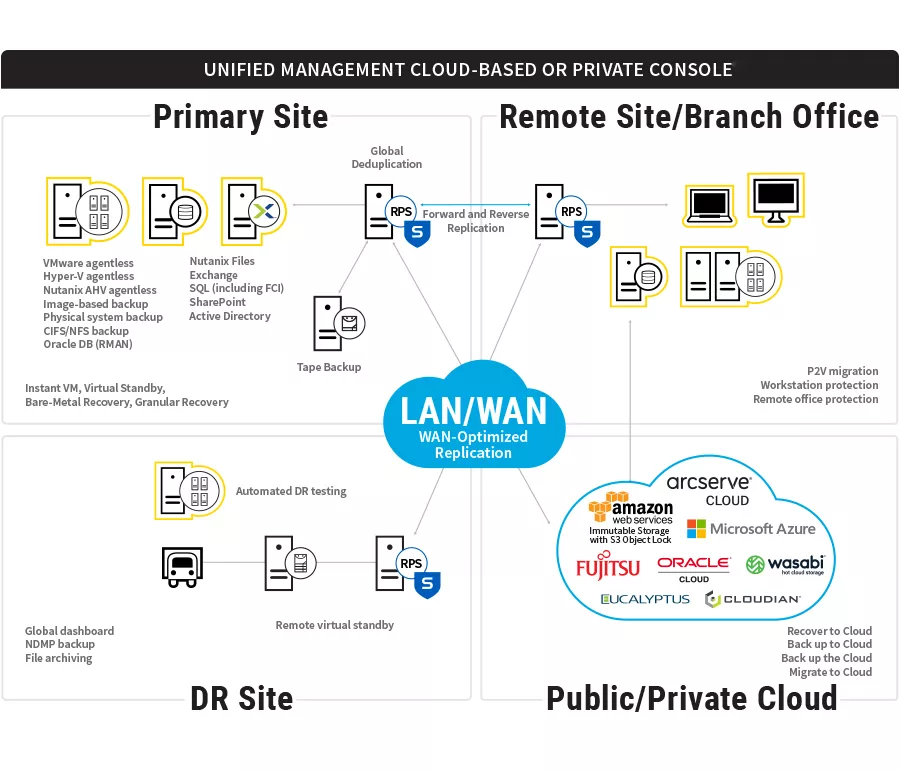
Unify Protection and Prevent Cyberattacks Across On- and Off-Premises Workloads, and Orchestrate Recovery
Ransomware has become a big business for cybercriminals. You do not want to be their “customer.” Your organization risks losing not only money but also irreplaceable data, time, and brand reputation.
Cloud Data Protection for Increased Resilience and Process Simplicity
You need to protect your company's business systems and data from attacks or loss, along with the increased resilience that can only come from simplifying processes across all storage platforms, whether local, virtual, or cloud. What you don't need is more products to manage.

Arcserve Unified Data Protection (UDP) software
Delivers an all-in-one data and ransomware protection and cybersecurity solution to neutralize ransomware attacks, restore data, and perform effective disaster recovery (DR).
Safeguarded by Sophos Intercept X Advanced cybersecurity,
Arcserve UDP uniquely combines deep-learning server protection, immutable storage, and scalable onsite and offsite business continuity for a multilayered approach that delivers complete IT resiliency for your virtual, physical, and cloud infrastructures.
Repel Ransomware and Recover Rapidly
Arcserve UDP Secured by Sophos delivers comprehensive data breach protection and cybersecurity for your critical enterprise data backup infrastructure. Orchestrated recovery reduces recovery time and point objectives (RTOs/RPOs) to minutes and validates service-level agreements (SLAs) with Assured Recovery.

How It Works

Arcserve UDP Secured by Sophos provides ransomware-free IT,
enabling you to protect critical data from cyberattacks; detect and reverse ransomware encryption; respond with a “no” to ransom demands; and recover all your systems and data safely.
Hybrid Business Continuity Topologies
Easily scale hybrid business continuity topologies, locally or over long distances with multiple sites, including service and cloud providers. Installation is done in a few clicks. Create data stores on the recovery point server, add the nodes you want to protect, a storage destination, and a plan. Perform jobs such as backup, virtual standby, and replicate. Perform a simple restore or a bare metal recovery.
Global, Source-side Deduplication
Back up to either a local machine or a central recovery point server (RPS) with global, source-side deduplication. A destination can be an RPS, local folder, or remote shared folder.
Fully Protect a Broad Range of Platforms
Fully protect a broad range of platforms, including: Microsoft Windows, Linux, Amazon EC2, Microsoft Azure, Microsoft Exchange, Microsoft SQL, file servers, Microsoft IIS, Microsoft Active Directory, Oracle Database with native RMAN support, VMware vSphere (agentless), and Microsoft Hyper-V (agentless), along with support of Nutanix Objects and Nutanix Files for protection of Nutanix HCI.

